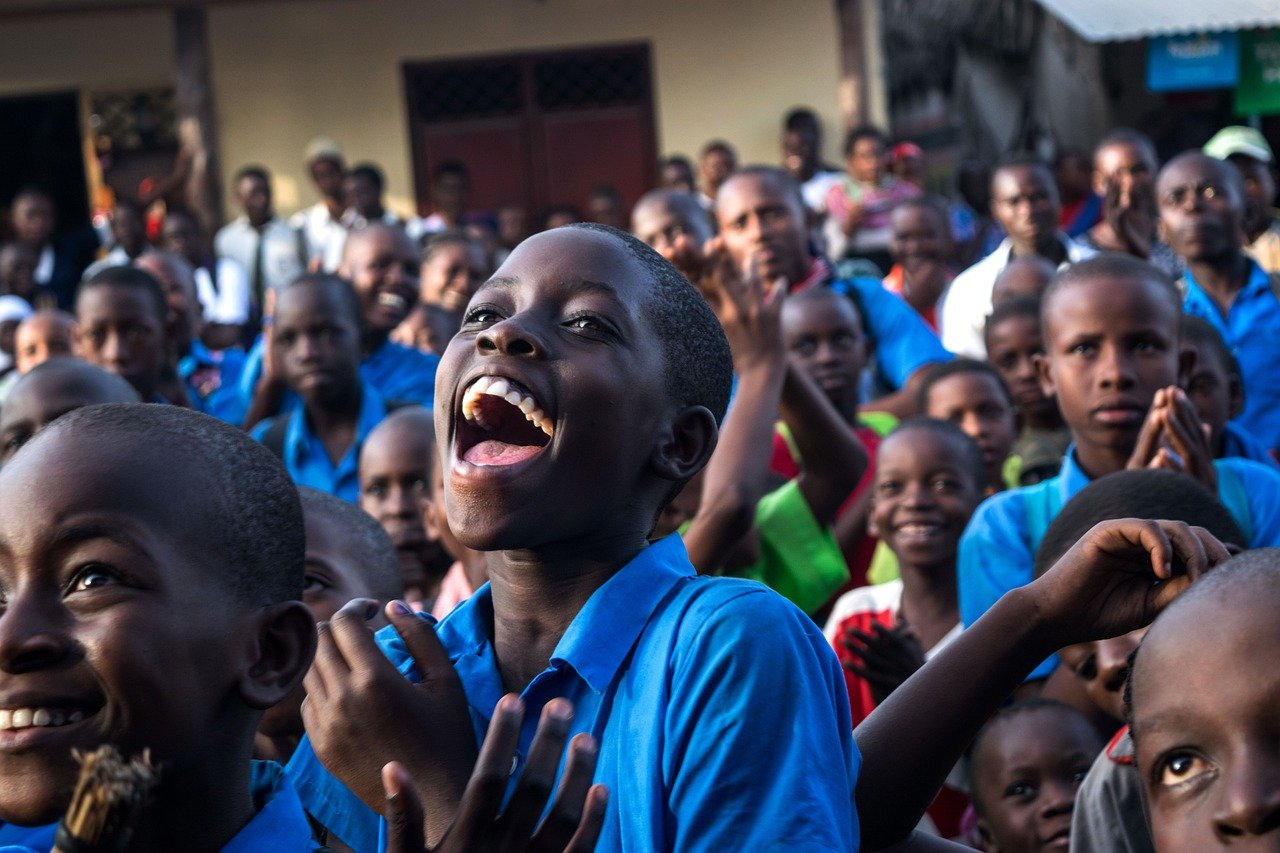News
Africa needs to ramp up education to meet the changing world of work
By 2050, Africa's population will exceed 2.3 billion people — adding on about the entire population of China today. Its urban cities too will see a doubling of the population with some 1.3 billion people added, most of whom will be young. Will they have the right training and skills to be able to create decent livings and help grow their economies? The answer to this depends on the actions, or better yet inactions, we take today.

Africa's burgeoning youth population is already telling. Today, the median age is 20 years compared to Europe at 43, North America at 39, Asia at 32, and Latin America and the Caribbean at 31. Still, Africa's population is getting younger. Two in every five children born in the world will be born in Africa by 2050.
Much has been said about the possible economic, political, and social implications of this changing demographic and the resulting gains, or catastrophe, if this population does not have access to basic systems to meet their needs. And that's true. Without economic growth, and better policy choices and institutional structures that give rise to it, African countries and cities — and their inhabitants — will not thrive. Attention must be paid to the kernels of reform that will determine the future growth and prosperity that is desirable on the continent.
The fuel to this much-need growth is its people — the quality of its people to be precise.
One in ten people 15 years and above are unable to read and write. The number, is perhaps, higher if the quality of education is factored in. High levels of illiteracy beget widespread marginalisation from productive economic and social life, worsens inequality, and is associated with poorer health and nutrition.
Given that the educational level of the labour force is linked to the level of national income, it cannot be disregarded in a comprehensive growth strategy that seeks to capitalize on the continent's bulging youth population.
Since the 1970s, Sub-Saharan Africa's primary-school education enrolment rates have improved from under 60 per cent to 100 per cent. Progression to secondary school has, however, tarried around 75 per cent since 2007. Similarly, the rate of primary-school completion for sub-Saharan Africa, at 70 per cent, is below the global average rate of over 89 per cent. This leaves a significant number of African youths who are not in or have fallen out of education — a situation with a clear impact on their employable skill levels as well as national income. Evidently, there are deep-seated socioeconomic barriers that hinder students' progression and completion of formal education, despite high enrolment rates, that need to be addressed.
While the official unemployment rate for sub-Saharan Africa is 6.6 per cent, only slightly above the global average of 6 per cent, underemployment is much higher. Typically, 90 per cent (or more) of the labour force is in the informal sector and many of those categorized as having work are self-employed or in poorly paying jobs. Only three million formal jobs are created annually while 10-12 million youth seek to enter the workforce each year. Especially, and in light of the mammoth increase in populations that will occur across the continent in the next two decades, will enough jobs be generated to employ the resulting massive number of young people?
This challenge has become even more pressing in light of the effects of the COVID-19 pandemic. Across the continent, millions of young people have had their lives disrupted and learning put on hold over the past 14 months. Although the disruption was an inconvenience globally, in Africa where an estimated 80 per cent do not have access to the internet, remote learning proved to be a sour endeavour and a far-fetched occurrence. To say formal education has been set back is an understatement.
Why is this important now? Writing on why 'Education must be a crisis priority, not an afterthought,' Dr Edward K. Brown, Senior Director of Research, Policy and Programs at the African Center for Economic Transformation (ACET) states that “With the right education and training, Africa's youth population will provide the region with an unparalleled comparative advantage in labour and human resources — and will accelerate Africa's economic transformation at the same time. Consider that each additional year of schooling in Africa raises individual earnings by 11 per cent for males and 14 per cent for females.”
There are considerable benefits to improving education provision and access — benefits that go beyond having a comfortable and well-paying job. Memories from getting an education are rarely about the tests and exams. Most of the time, it's the friends; it's the interesting discoveries; the habits picked up; the diverse skills from odd classes and mandatory extracurricular activities; the teachers that chose to go the extra mile; the new ideas students are exposed to; the problems solved; and the fascinating words people deemed interesting because they sounded so funny and yet can still recall 15 years later. Those experiences are important, and instructive, for two main reasons.
One, the educational system is important because it's the fostering ground for how society is nurtured and trained. It thus warrants adequate resources and a strategic plan to ensure that the people it produces have the right skills and can meet the needs (social, economic, environmental, and cultural) of the economy.
Second, the future belongs to those that solve interesting problems. According to the World Economic Forum's Future of Jobs Report, the top skills that will grow in importance are critical thinking and problem-solving skills. Increasingly, self-management skills such as active learning, resilience, stress tolerance and flexibility are preferable in the workplace of the future. It's not just the skills people need to have but how quickly they need to reskill. According to a 2019 WEF survey, 50 per cent of all employees will need reskilling by 2025 as the adoption of technology increases and continues to change the way we do things. Thus, having the relevant skills and the ability to learn new skills quickly will be the defining factor.
Africa remains well behind international rates of enrolment, progression and completion in basic education, and especially tertiary education. As of 2015, Africa produced only 1.1 per cent of global scientific knowledge and had just 79 researchers per million inhabitants, compared to countries like Brazil and the United States at 656 and 4,500, respectively — the world average then was 1 081 per million inhabitants. To compete, Africa needs to improve its human capital, quickly. Education, skills development, technological advancement and innovation linked to strategic growth initiatives must be an inherent part of growth discourse.
The historical examples of countries like Taiwan, South Korea, Japan, Malaysia, and many others, show how a focus on human capital development can carry a country through different stages of growth and industrialisation. Without skills and knowledge derived from substantial education and training, no positive development outcomes can be achieved. And that is not a challenging task. The continent possesses an abundance of energetic young people, who, properly engaged, enabled and supported, have the potential to drive significant change, as happened in East Asia.

For this, an extract from Singapore's strategic economic plan, written in 1991, titled 'Towards a Developed Nation', is instructive of the intentionality around their transformation: 'The single most important factor towards achieving developed country status is enhancing Singapore's most important resource, its people. They should be equipped with a high standard of competence; a high level of basic education; a high degree of industry relevance in training programmes; effective programmes for mid-career training; and nurturing important human resource qualities, such as work ethic and creativity.'
Tackling Africa's human capital deficit will require both short- and long-term actions. In the book Making Africa Work, the authors advocate that, in the immediate future, countries need to perform an audit to identify the critical gaps, where and how to reach their home-grown talent, and how to productively engage them to return or invest. Simultaneously, they add, 'partnerships with higher education institutions and focused scholarship schemes, such as those run in Singapore and Chile, need to be set up to fast-track the development of better-equipped graduates, and they need to be tied to returning to the country where they will be absorbed to work in key positions.' Such intentional actions will be key to creating and building the kind of human capital the continent needs. Over the longer term, the gains from the above, and iterations to how things are done, can help restructure and build an educational system that supports the needs of Africa's nations and what they aspire to become.
Technology too offers some options. From e-governance to healthcare to education, integration with technology can improve service delivery. Education delivery is not a mandate that should only fall on the government; the private and civil society must also help. The government's role should be to facilitate these partnerships and engagements. Innovative financing and financial models; public-private partnerships; government support for tech incubators and universities; a clear economic plan that prioritises training, skills, and knowledge transfer; and investing in research and development to spur innovation will help.
All these initiatives, properly organised, will contribute towards building a skills-relevant and comprehensive economic transformation and industrialisation agenda that fosters inclusive growth and sustainable development for Africa's bulging young population.
The world is growing and changing, fast. People — quality as much as quantity — will make or break the stability and sustainability of economies. Africa cannot afford to miss the bus this time around. Its young, and working, population need better plans. Plans that are targeted, implementable and live beyond the pages of verbose documents and political gimmicks.
Marie-Noelle Nwokolo is a researcher with the Johannesburg-based policy advising and think tank, Brenthurst Foundation. Some ideas in this article draw on lessons from the Foundation's book, — Making Africa work: A handbook for economic success.
This article was originally published on Daily Maverick.


